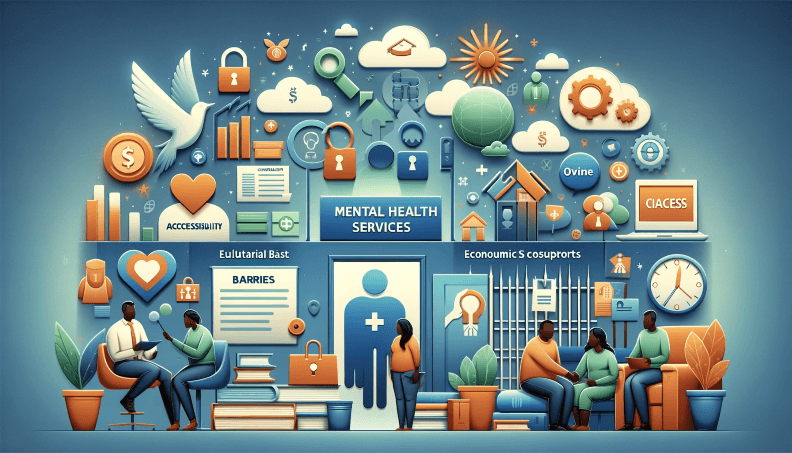Introduction
Mental health is a key part of maintaining quality of life and well-being.
Mental health services play a vital and life-saving role in addressing these issues.
However, access to and availability of mental health services can vary by country and region.
This article discusses how to access and use mental health services and their availability. The importance of mental health cannot be overstated.
The Importance of Accessing Mental Health Services
Mental health issues are a global problem, affecting people of all ages and social classes.
Access to mental health services is essential to addressing and overcoming these issues.
Providing accessible services can have a significant impact on promoting individual mental health and social inclusion.
When access to mental health services is limited, problems associated with mental illness can worsen. T
his can lead to disruption in daily life and missed opportunities for early treatment. Access to mental health services therefore plays an important role in prevention and treatment.
Factors that Make Access to Mental Health Services Difficult
Cultural biases, social constraints, and economic hardship are some of the factors that make access to mental health services difficult.
Negative attitudes and misconceptions about mental health in society can make people hesitant to access services.
The cost of mental health services can also affect access.
Many people are unable to access mental health services due to cost.
In the absence of insurance coverage or government assistance programmes for mental health services, the cost is often borne by the individual.
Alternatives for Improving Access to Mental Health Services
The following alternatives can be considered to improve access to mental health services:
- Information and education: Providing information and education about mental health services can help people learn about them.
- This can reduce negative attitudes and misconceptions and improve access to services.
- Financial support and insurance coverage: To reduce the cost burden of mental health services, governments or non-profit organisations can offer monetary assistance and insurance coverage programmes. This allows people who are experiencing financial hardship to access mental health services.
- Community-based services: Community-based mental health services provide services that are easily accessible to individuals within their local area. Through collaboration with various resources in the community, the availability of mental health services can be increased.
Conclusion
Access to and availability of mental health services is critical to maintaining mental health.
Accessible services can have a significant impact on promoting individual mental health and social inclusion.
It is therefore a challenge for our society to improve access to mental health services by addressing factors such as cultural bias and economic hardship.
Q & A
- Why are mental health services important?
- Mental health issues are a global problem that affects people of all ages and social classes. Access to mental health services is essential to addressing and overcoming these challenges.
- Why is it difficult to access mental health services?
- Cultural biases, social constraints, and economic hardship are some of the factors that make it difficult to access mental health services. The cost of mental health services also affects accessibility.
- What are some alternatives for increasing access to mental health services?
- Providing information and education about mental health services, financial assistance and insurance coverage, and community-based services may be considered alternatives to increase access to mental health services.
- What are the social challenges to improving access to mental health services?
- Improving access to mental health services by addressing factors such as cultural bias and economic hardship is a challenge for our society.
- Where can I get information about mental health services?
- Information is available through online resources, resources provided by health care providers, and educational programmes about mental health services.
- What are the issues that arise when access to mental health services is limited?
- Limited access to mental health services can worsen problems associated with mental illness, interfere with daily life, and lead to missed opportunities for early treatment.
- What are the important factors in increasing access to mental health services?
- Community-based services, financial support, and the provision of education and information to reduce cultural bias and misconceptions are important factors in increasing access to mental health services.

